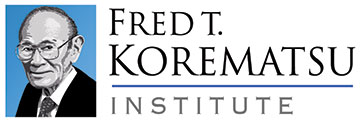Banned Books Week & Let Freedom Read Day
Today is Let Freedom Read Day, the final day of Banned Books Week. Banned Books Week (October 1-7) brings together writers, readers, librarians, students, and teachers in support of the freedom to express ideas and opinions and the choice to read whatever you would like.
Stories from the indigenous, AANHPI, African American, and LGBTQ communities are often underrepresented in our school and history books. These stories make up the fabric of our shared American story. And we firmly believe education can help create a world where racial equity, social justice, and human rights for all are the norm. We need to talk about the Indian Removal Act of 1830. We need to talk about Jim Crow and poll taxes. We need to talk about the coram nobis cases. We need to talk about the past and present. By rewriting or erasing these stories and perspectives, we need to address racism head-on for our collective future.
Fred Korematsu represented his community and championed free speech, civil liberties, and racial equality. Today, the Korematsu Institute is a national organization that inspires educators, students, and the public through Fred Korematsu’s story. The lessons learned from the Japanese American Incarceration and Fred’s fight for justice have taken on heightened significance over the past five years with an uptake in post-Covid xenophobia, hate speech, and censorship. At the Korematsu Institute, we believe words matter, we believe history matters and we believe in the power of education to bring about substantive change. We support ethnic studies education because we need to know the contributions, history, and heroes of all of our communities. Some of our history is difficult, but we need to have the uncomfortable conversations necessary to secure a future of respect, understanding, and safety for ALL of our Americans.
How can you take action against censorship and banned books? Read a banned book. Visit your local library or bookstore and pick up a banned or censored title. Decide on the content yourself. Speak up. Have conversations about and champion the ideas and literature you come across. Support librarians and educators coming under fire for sharing banned books in libraries and schools. Attend school board meetings and PTA meetings where decisions are made. And vote! Vote in every election no matter how big or how small. Decisions are made on the local, state, and federal levels. Be a part of that conversation. Stand up for what is right.
Learn more about banned books and see the most banned books of 2022 at the American Library Association website.
